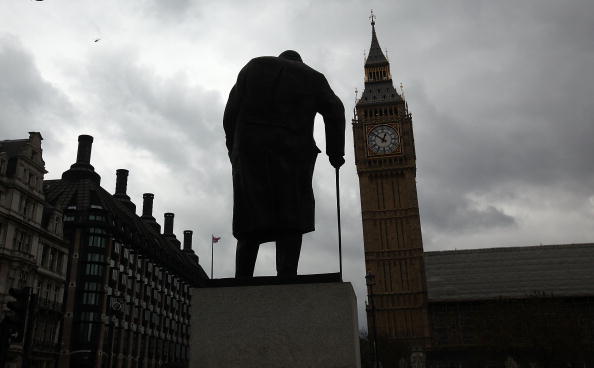A Churchillian answer to the Covid-19 debt: what we need is emergency consols

The budget numbers are stark: taxes rising to their highest since the 1950s, government debt hitting 97 per cent of the national income, and that’s if we’re lucky. Much of the problem is down to the cost of pandemic measures—furlough, welfare, business loans and lower lockdown tax revenues—of around £550bn, equating to £20,000 for every household.
This all gets in the way of sensible policy making. This exceptional 1-in-100-year debt swamps the rest of the public finances. That’s why we need to “isolate” the Covid-19 “war debt” so that it does not get mixed up with normal government business. Then we can postpone the repayment of this exceptional borrowing until better times.
One option is for the government to use “Covid-19 bonds” similar to war bonds, which pay interest only after, say, 30 years. The trouble is that, by then, the capital cost of the bonds would have soared, and repaying them would be an even bigger headache. An alternative might be to repay 1 in 30 of the bonds each year, but that is still a big hit on public finances. A third option is for the government to simply tell the Bank of England to tear up all the Treasury IOUs it is holding—but that would be a sovereign debt default many times bigger than those of Mexico, Russia, Argentina and Greece in the past.
Instead, we should accept that the Covid borrowing is a 1-in-100-year problem. In a new paper for the Adam Smith Institute, we argue that this problem should be tackled just as we dealt with national emergencies since the 1700s—by issuing consols.
Consols, whose name comes from “consolidated annuities”, are government securities, like the normal 10 or 30 year bonds that the government issues, but they have no fixed repayment date. They endure until the government buys them back. Meanwhile, just like normal bonds, consols pay their holders a fixed sum every year—maybe a little more than today’s 30-year bonds. Something like £1.50 a year on a £100 bond.
There are several advantages to consols. First, the government does not have to worry about repaying £550bn any time soon. The Napoleonic War consols were only fully repaid in 2014.
This method also locks in today’s ultra-low interest rates. Right now, £1.50 a year forever seems a pretty good return on a £100 investment, particularly for pension funds who need steady income. True, it would look less good if interest rates rise, but then the market value of consols would fall. Lastly, the annual payments on the debt are manageable—just over £8bn a year on £550bn—especially if the economy does grow strongly.
Ideally, the government should have issued consols when the Covid costs hit. But as its debts fall due, it could gradually convert the extra £550bn of IOUs into consols, exactly what Churchill did with WWI debt in 1927.
It is vital to preserve consols as something special, like war debts. To ensure that future governments do not abuse this idea, they should come with a pledge to repay them as soon as economic circumstances permit. Consols must be kept for exceptional 1-in-100-year emergencies like wars and pandemics, where it becomes necessary to spend fast, without overthinking about the cost. They should never be used for funding politicians’ wish-list projects, be they green energy or bridges across the Irish Sea. If we let politicians borrow for anything they want, we would soon be drowning in debt with no hope of repaying it.